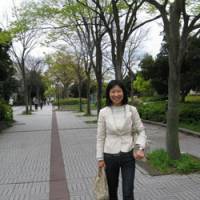Six years ago, a 28-year-old former child-care assistant named Michiru Hanai decided she wanted to go to university to get a teacher's license.
There were just two problems. First, although many undergraduate programs have special admission systems that allow older applicants to sidestep the fact-heavy entrance exams, education courses don't. The tests are based on the current high school curriculum, and future teachers are expected to know that curriculum thoroughly.
Second, Hanai had attended an alternative high school that didn't follow the standard curriculum, so she was essentially starting from zero.
Living with her older sister, a nurse, and receiving financial support from her parents, Hanai began preparing for the test. For 2 1/2 years she studied calculus, biology, world history, ethics and classical Japanese at home for 12 hours a day.
She also studied math with a private tutor and attended cram school several days a week — a socially harrowing experience, despite good teachers and a few friendly students.
"It was hard to be there," she said. "Some kids would come up and ask me directly, 'Why are you here at this age?' I had no confidence and couldn't say anything. But I had a really strong dream so I didn't drop out."
Unlike some of her high school peers, however, she enjoyed the intensive studying. "Sometimes I was moved by the thoughts of the philosophers. Some of my favorites were Confucious and Buddha. I liked solving math problems, too," she said.
After 1 1/2 years, Hanai took the entrance exam but failed. A year later she tried again and passed. Hanai is now a senior in the Faculty of Education at Wakayama National University, where she is majoring in classical Japanese.


















With your current subscription plan you can comment on stories. However, before writing your first comment, please create a display name in the Profile section of your subscriber account page.